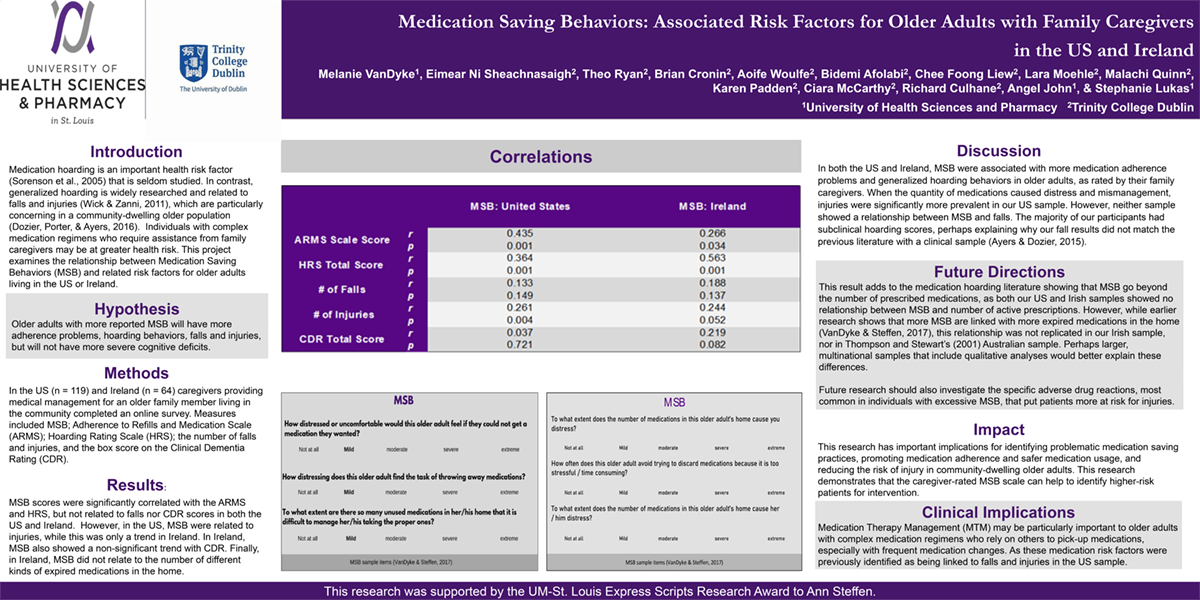
Introduction: Medication hoarding is an important health risk factor (Sorenson et al., 2005). In addition, hoarding is related to falls and injuries (Wick & Zanni, 2011) and may be particularly concerning in a community-dwelling older population (Dozier, Porter, & Ayers, 2016). Individuals with complex medication regimens who require assistance from family caregivers may be at greater health risk. This project examines the relationship between Medication Saving Behaviors (MSB) and related risk factors for older adults living in the US or Ireland.
Methods: In the US (n = 119) and Ireland (n = 66) caregivers providing medical management for an older family member living in the community completed an online survey. Measures included MSB; Hoarding Rating Scale (HRS); Adherence to Refills and Medication Scale (ARMS); Clinical Dementia Rating (CDR); and the number of expired medications, falls, and injuries.
Results: As hypothesized, MSB scores were significantly correlated with HRS, ARMS, expired medications, and injuries (r = .24-.44; p = .001-.018). However, MSB was not related to falls nor CDR. Preliminary data from the Irish sample shows a similar pattern with each of these relationships. When the quantity of medications caused distress and mismanagement, several health risk factors were more prevalent. The majority of our participants had subclinical hoarding scores, perhaps explaining why our fall results did not match the previous literature (Ayers & Dozier, 2015).
Impact: This research has important implications for identifying problematic medication saving practices, promoting medication adherence and safer medication usage, and reducing the risk of injury in community-dwelling older adults. This research demonstrates that the caregiver-rated MSB scale can help to identify higher-risk patients for intervention. For instance, Medication Therapy Management (MTM) may be particularly important to older adults with higher MSB scores who rely on family caregivers to assist with their medications.
Organization: University of Health Sciences and Pharmacy
VanDyke M, Ni Sheachnasaigh E, Ryan T, Lukas S